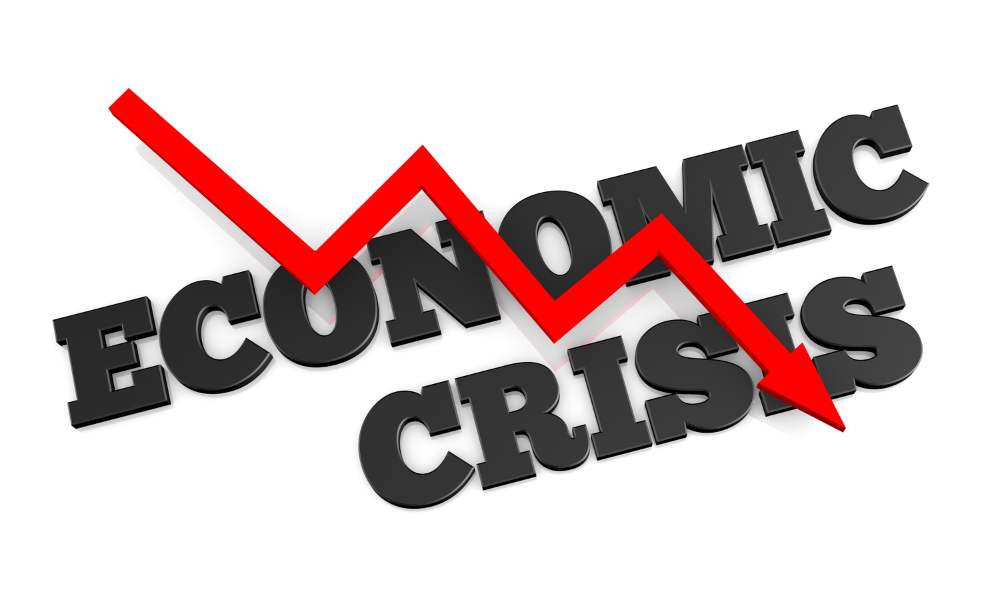
In the realm of economic uncertainties, the term "Economic Crisis" looms large, capturing the attention of policymakers, economists, and everyday individuals alike. Understanding the nuances of such crises is pivotal in navigating the complex economic landscape.
Explore with us as we delve into The Impact Of The Economic Crisis, shedding light on the multifaceted effects that economic downturns can have on societies, businesses, and individuals. Gain insights into navigating and mitigating the challenges posed by economic crises in this comprehensive exploration.
To comprehend the gravity of economic crises, a brief exploration of historical events is essential. Examining major crises throughout history provides insights into patterns, triggers, and outcomes that shape the economic landscape.
Economic crises often result from a combination of external and internal factors. External factors may include global market fluctuations, geopolitical tensions, and natural disasters. Unraveling these complexities unveils the interconnectedness of the global economy.
Simultaneously, internal factors, such as flawed economic policies, banking crises, or unsustainable debt levels, contribute significantly to the onset of economic turmoil. Recognizing these internal dynamics is crucial for preemptive measures.
The ripple effects of an economic crisis extend far and wide, affecting diverse sectors.
The heart of the storm often hits financial markets first. Stock market crashes and currency devaluation are common manifestations, causing widespread panic and financial losses.
As economic uncertainties escalate, the job market feels the impact. Mass layoffs, reduced hiring, and increased unemployment rates become stark realities.
Small businesses, being the backbone of many economies, face unique challenges during economic downturns. Understanding how to weather the storm is vital for their survival.
Governments play a pivotal role in mitigating the effects of economic crises through targeted policies.
Implementing effective fiscal policies, such as stimulus packages and tax breaks, is a common strategy to jumpstart economic recovery.
Central banks often resort to adjusting interest rates and liquidity measures to stabilize financial markets and boost confidence.
Navigating an economic crisis isn't solely the responsibility of governments and institutions; individuals can take proactive steps too.
Implementing sound budgeting practices helps individuals manage their finances prudently during uncertain times.
Smart investment decisions can provide a buffer against economic shocks. Diversifying portfolios and staying informed are key strategies.
The modern world is characterized by a tightly interconnected global economy.
Understanding how international trade influences economic dynamics is essential for comprehending the chain reactions triggered by a crisis.
Examining successful recovery stories provides valuable insights into rebuilding shattered economies.
Analyzing case studies, such as the recovery of post-war economies, sheds light on the factors contributing to successful rebounds.
Predicting future economic trends requires a nuanced analysis of current events and emerging patterns.
Economists offer predictions and analyses, but the future remains uncertain. Navigating the unknown requires adaptability and foresight.
Beyond the tangible economic indicators, the psychological aspect of a crisis plays a pivotal role.
Understanding how public perception and confidence influence economic outcomes is crucial for shaping recovery strategies.
Each economic crisis brings forth lessons that can guide policymakers, businesses, and individuals in avoiding future catastrophes.
Implementing robust regulatory frameworks and learning from past mistakes are crucial steps in preventing future economic crises.
In the ever-evolving landscape of the global economy, grasping the intricacies of economic crises is indispensable. By understanding historical precedents, causes, and effective responses, individuals and societies can navigate uncertainties more adeptly.
How can individuals protect themselves during an economic crisis?
Implementing budgeting tips and making informed investment decisions can provide a financial buffer.
What role does international trade play in economic crises?
International trade dynamics can amplify the impact of a crisis, highlighting the interconnectedness of the global economy.
Are there specific indicators that predict an economic crisis?
While certain indicators exist, predicting an economic crisis with absolute certainty remains challenging due to the complexity of factors involved.
How do governments stimulate economic recovery?
Governments often use fiscal and monetary policies, such as stimulus packages and interest rate adjustments, to jumpstart economic recovery.
What lessons can be learned from past economic crises?
Past crises emphasize the importance of robust regulatory frameworks, prudent financial practices, and global cooperation in preventing future catastrophes